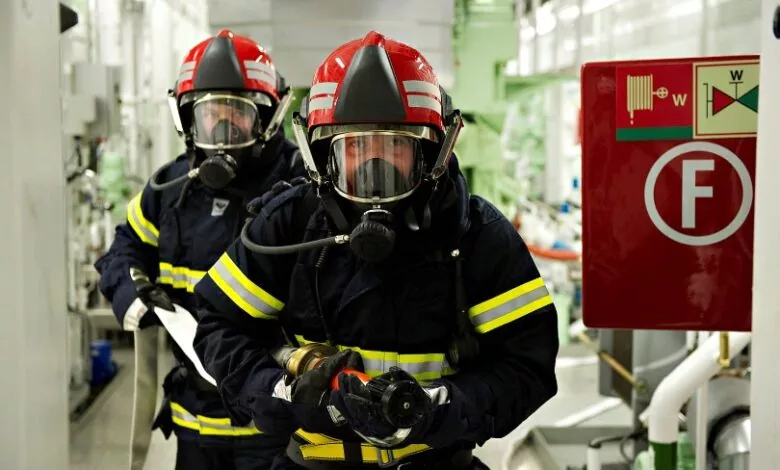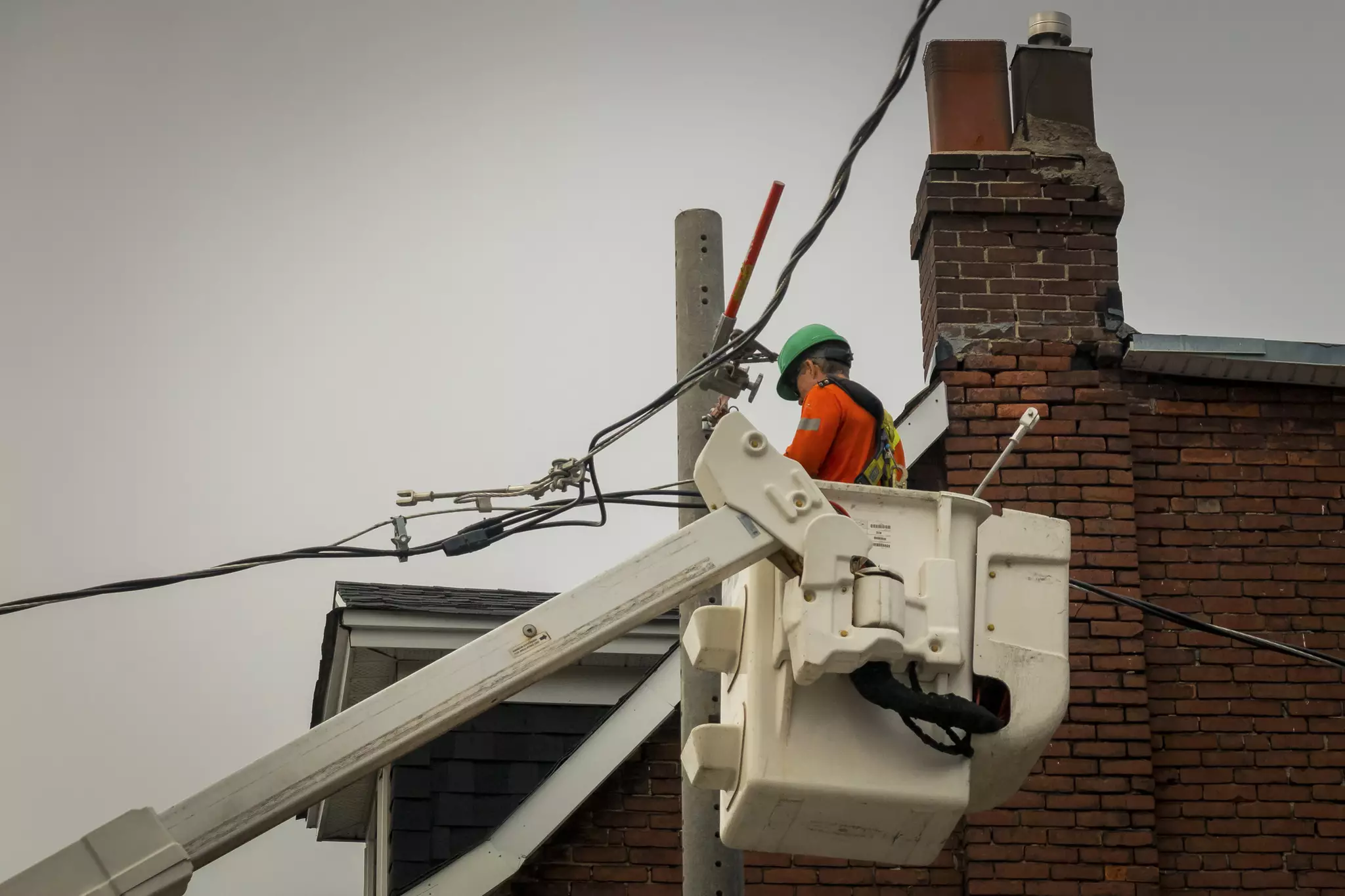Immigrating to a new country can be difficult for anyone due to various reasons, including complex requirements and hurdles to overcome. However, if you are considering immigrating to Canada as a firefighter, the process can be more straightforward. Why? Firefighters are listed among the in-demand jobs according to the National Occupational Classification (NOC) 4312. This means Canada needs your skills, and moving to Canada is a viable option for you, with or without a job offer. Your application can be processed through the Express Entry system or the Provincial Nominee Program. In this article, we’ll explore how both pathways can facilitate your immigration to Canada and secure firefighter jobs in Canada.

Express Entry
Express Entry is an online system used by the Canadian government to manage applications for permanent residence. The Express Entry system comprises three federal immigration programs:
- Federal Skilled Worker Program
- Federal Skilled Trades Program
- Canadian Experience Class
Express Entry is known to be one of the fastest immigration routes to Canada, typically taking just six months. Over the next three years, the government aims to welcome more than 1.2 million immigrants to Canada, with Express Entry accounting for 332,750 of the total.
How Does the Express Entry System Work?
Once you have completed the Express Entry requirements, you will need to create an online profile. The following items are required:
- Your passport or travel document
- Education credential assessment report
- Language test results
- Certificate of qualification in a trade occupation issued by a Canadian province or territory (if applicable)
- Proof of work experience (if applicable)
- Provincial Nomination (if applicable)
After creating your profile, you will have 60 days to complete and submit it. You will then be placed in a pool with other eligible applicants and receive a Comprehensive Ranking System (CRS) score, which determines your ranking among other candidates.
To receive an Invitation to Apply (ITA), you must meet or exceed the CRS cut-off score for the specific draw. The ITA allows you to apply for permanent residence in Canada. One of the benefits of the Express Entry system is that if you do not qualify for a particular draw, your profile will remain in the pool for one year, giving you another chance to be selected.
What is the Comprehensive Ranking System (CRS)?
The Comprehensive Ranking System (CRS) is a points-based system used by the government to assess, score, and rank all profiles in the Express Entry pool. The higher your CRS points, the more likely you are to receive an ITA. The total CRS score consists of two sections: a base point set totaling 600 points and an additional set of 600 points, bringing your maximum score to 1,200 points.
How Does Express Entry Help Firefighters Immigrate to Canada?
Firefighters fall under the National Occupational Classification (NOC) 4312, making them eligible for the Federal Skilled Worker Program (FSWP) within Express Entry.
What Is the Federal Skilled Worker Program?
The Federal Skilled Worker Program (FSWP) is designed for individuals with qualifications, skills, or work experience that can contribute to the Canadian economy. When applying through the FSWP, a job offer is not required, although having one can increase your chances of receiving an ITA. With a significant number of Canadians retiring each year, the demand for skilled workers is on the rise, making it easier for professionals to secure firefighter jobs in Canada.
What Are the Requirements of the Federal Skilled Worker Program?
To qualify for the FSWP, you must meet the following requirements:
- Skilled Work Experience: A minimum of one year (part-time or full-time) experience in a NOC skill type (A, 0, or B).
- Proof of Funds: Sufficient funds to support yourself and your family upon settling in Canada unless you have a valid job offer or can legally work in Canada.
- Language Ability: A minimum score of Canadian Language Benchmark (CLB) 7 in all four abilities for English and French.
- Security and Medical Checks: Successful completion of a security background and medical examination.
- Skilled Worker Point Grid: A minimum score of 67 out of 100 points under the skilled worker point grid, which comprises six selection factors.
- Education: At least a certificate from a secondary institution (high school).
Provincial Nominee Program
The Provincial Nominee Program (PNP) allows local Canadian provinces to nominate immigrants who wish to live and work in their region. To receive a nomination through the PNP, you must choose a province and request an appointment. Provinces select candidates based on their migration and labor needs, often to stimulate their economy and support an aging population.
There are 11 provincial nomination programs in Canada, including:
- Alberta Immigrant Nominee Program (AINP)
- British Columbia Provincial Nominee Program (BC PNP)
- Manitoba Provincial Nominee Program (MPNP)
- New Brunswick Provincial Nominee Program (NB PNP)
- Newfoundland & Labrador Provincial Nominee Program (NL PNP)
- Northwest Territories Nominee Program (NTNP)
- Nova Scotia Provincial Nominee Program (NS PNP)
- Ontario Provincial Nominee Program (OINP)
- Prince Edward Island Provincial Nominee Program (PEI PNP)
- Saskatchewan Immigrant Nominee Program (SINP)
- Yukon Nominee Program (YNP)
Quebec has its immigration selection process and points system that differs from other provinces.
How Does the Provincial Nominee Program Work?
When applying for permanent residence in Canada through a PNP, you have two main options: apply directly in a province or territory or through the Express Entry process.
Direct Application Process
This process involves submitting a paper application by mail, which can incur additional costs and may take between 15 and 19 months for results.
Express Entry Application Process
You have two options:
- Expression of Interest: You can express interest in a specific province or territory when creating your online profile, allowing the province to select your profile directly from the Express Entry draw pool.
- Provincial Nominee Express Entry Stream: Most provinces in Canada have an Express Entry stream along with a list of in-demand occupations.
Applying through the Express Entry process is generally faster, with an average processing time of six to eight months. Both pathways provide excellent opportunities for firefighters to immigrate to Canada.
Move to Canada as a Firefighter
Qualifications Required to Immigrate to Canada as a Firefighter
To live and work in Canada as a firefighter, you typically need:
- Completion of secondary school.
- A college program in fire protection technology, fire science, or a related field, along with supervised practical training.
- Firefighting and emergency medical care training courses, which vary in length depending on the requirements of different fire departments.
- Certification for firefighters is mandatory in Nova Scotia, Quebec, Ontario, Manitoba, and Alberta, while it is voluntary in other provinces.
- Experience as a volunteer firefighter may be advantageous.
- Physical agility, strength, fitness, and vision requirements must be met.
- Several years of experience are required for senior firefighter positions, such as lieutenants and captains.
Job Duties as a Firefighter in Canada
As a firefighter in Canada, your daily duties may include:
- Rescuing victims from burning buildings and accident sites.
- Responding to fire alarms and other emergency calls, including automobile and industrial accidents.
- Administering first aid and other assistance.
- Assisting the public, police, and emergency organizations during major disasters.
- Maintaining a high level of physical fitness through training.
- Preparing written reports on fire incidents.
- Ensuring proper operation and maintenance of firefighting equipment.
What Does a Firefighter Earn in Canada?
Average Annual Salary by Province:
| Average Annual Salary | |
|---|---|
| Province | Amount in CAD |
| Ontario | $ 77,670 |
| Nova Scotia | $ 57,000 |
| British Columbia | $ 85,000 |
| Alberta | $ 79,824 |
| Saskatchewan | $ 62,400 |
| Manitoba | $ 68,680 |
| New Brunswick | $ 28,686 |
| Newfoundland & Labrador | $ 56,302 |
| Northwest Territories | $ 76,109 |
| Prince Edward | $ 54,232 |
| Yukon | $ 56,375 |
Are Firefighters in Demand in Canada?
Firefighter code 4312 has been on the Canadian National Occupational Classification (NOC) list for many years, indicating a constant need for firefighters across the country due to workforce retirements and economic growth. Firefighter jobs in Canada are known to offer competitive salaries compared to those in the UK, Europe, and Asia, along with a supportive work environment that Canada is recognized for valuing.
In conclusion, if you are a firefighter looking to immigrate to Canada, understanding the pathways available to you and the requirements involved can significantly enhance your chances of a successful transition and securing firefighter jobs in Canada.











No comments yet.